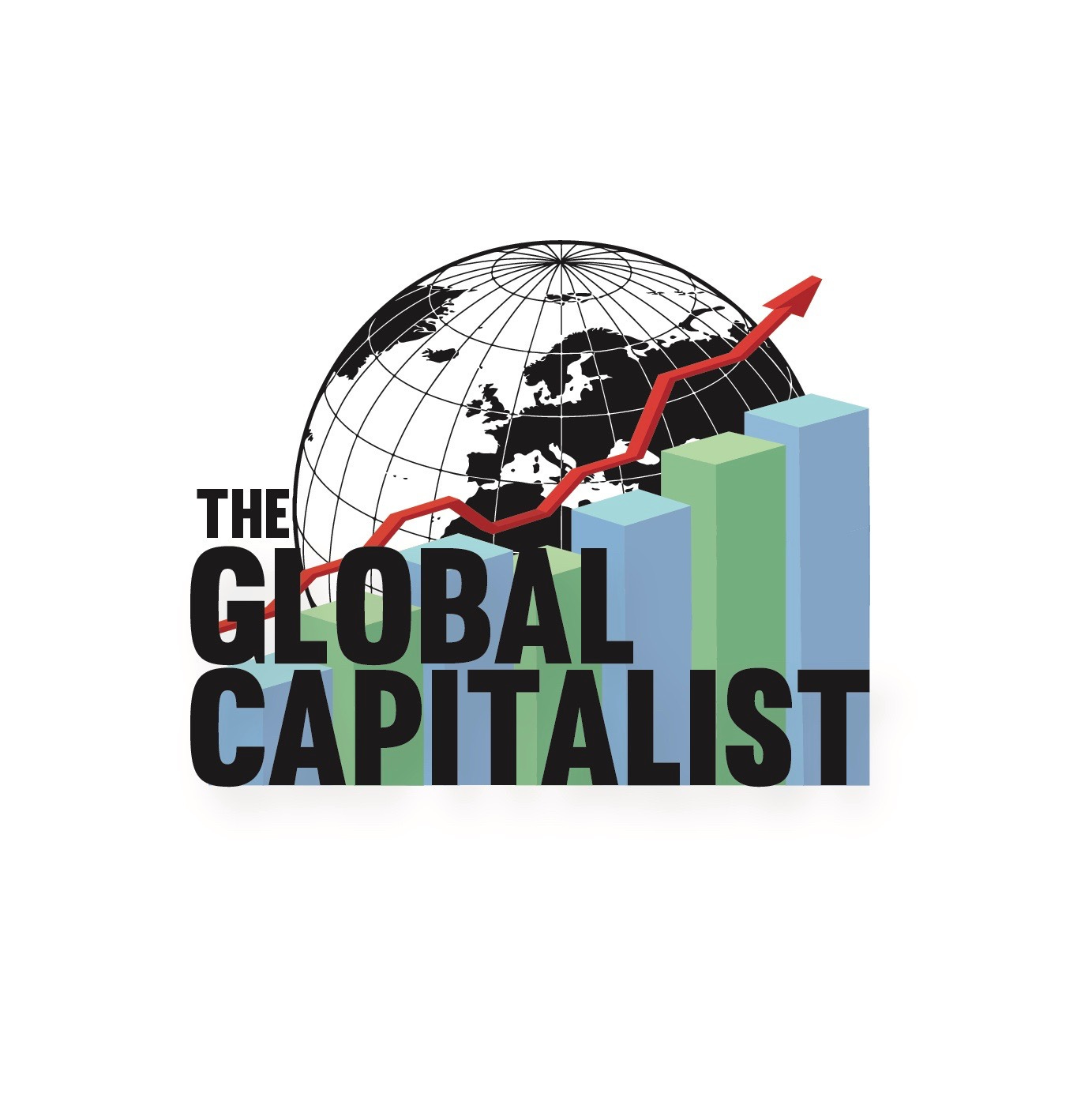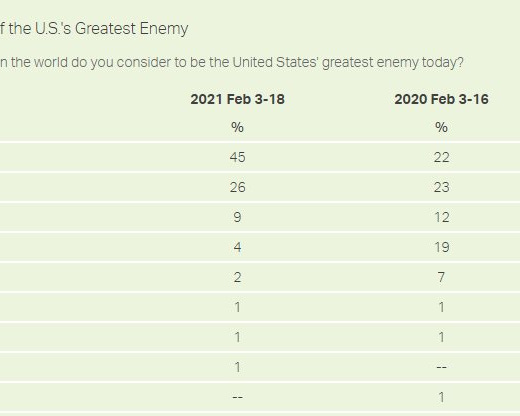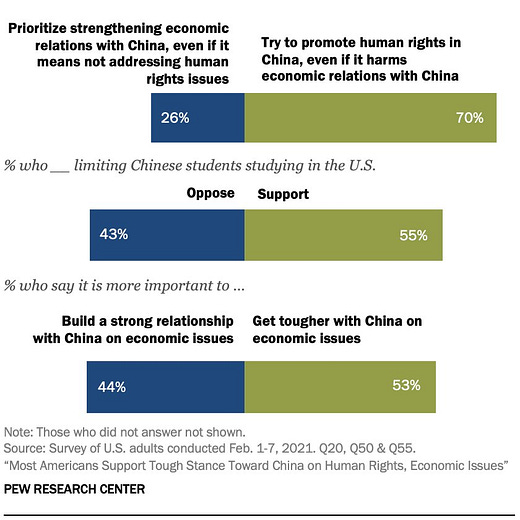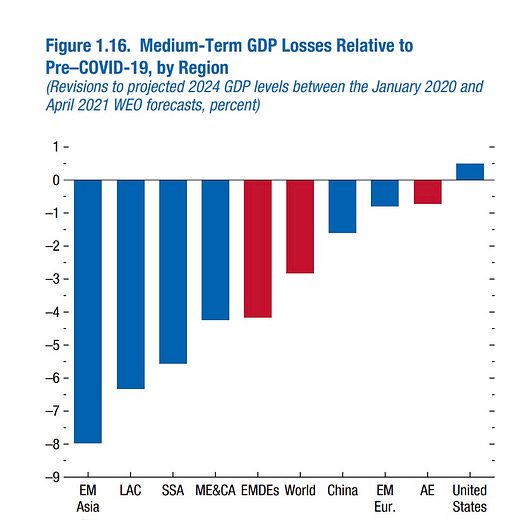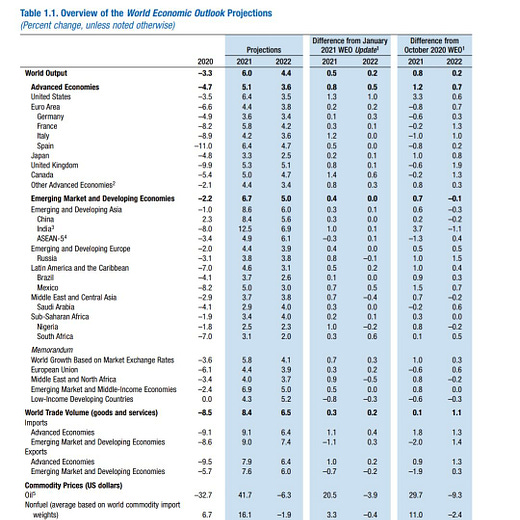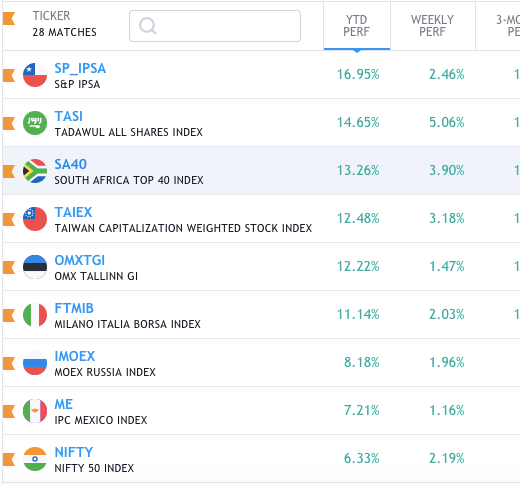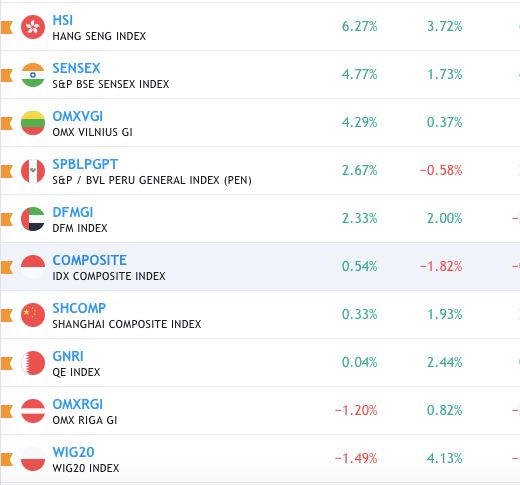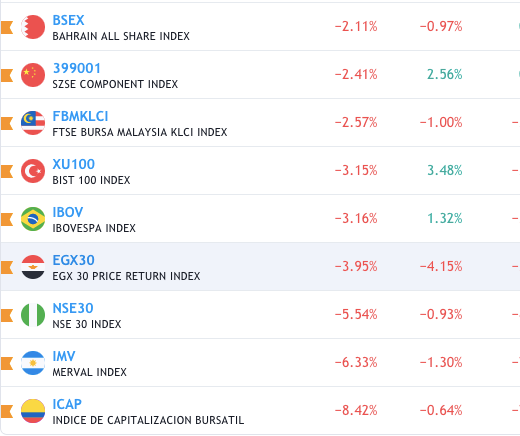This Week In Emerging Markets (Vol. I)
News, data, and curated content from across the globe
Welcome to This Week In Emerging Markets, a weekly wire for topics in, from, and about emerging markets.
Hey everyone — Trying something new out.
Rest assured, I’m working on the next long-form piece as we speak.
Enjoy the weekend.
— Tom
Bloomberg: Jokowi Doubles Indonesia’s Wealth Fund Goal to $200 Billion
That’s double the $100 billion target set earlier this year, and a long way from the fund’s $15 billion start. The fund has been in talks with 50 fund managers and has received pledges from those in the United Arab Emirates, Japan, the U.S. and Canada, which will help it grow to $20 billion in six months, the president said Wednesday.
Home to the world’s largest nickel reserves, Indonesia is determined to climb up the value chain and become a hub for end-to-end battery-making. It recently set up its own electric vehicle battery holding company and is seeking joint ventures with several global players, including China’s Contemporary Amperex Technology Co. Ltd. and South Korea’s LG Chem Ltd.
Almost Daily Grants: Arrears Window
The Kingdom of Saudi Arabia ran a $79 billion fiscal deficit last year, equivalent to 12% of GDP (nearly triple 2019’s shortfall relative to output), while FX reserves fell to $438 billion as of Jan. 31 from a $730 billion high water mark in September 2014. Awash in red ink, the government responded last year by tripling the value added tax to 15% and raising its self-imposed cap on sovereign debt to 50% of GDP from 30%.
———————————————————
Meanwhile, bin Salman told reporters last Tuesday that he is counting on local enterprises to invest $1.3 trillion in capital spending into the Saudi economy over the next decade, with Aramco and Sabic kicking in 60% of those funds. In exchange for that generous donation, Aramco could decrease its $75 billion in annual dividends, the vast majority of which accrue to the state government.
Prospective dividend relief could prove a temporary boon for the oil giant, and a further dose of stress for government bean counters. Last year, Aramco paid the Kingdom a total of $110 billion across dividends, royalties and income taxes. That’s not only far in excess of the $49 billion in net income and free cash flow generated in 2020, but also a material chunk of the Saudi government’s $272 billion state budget last year.
Pekingology: Josh Rogin's WashPo column & book misrepresents a U.S. diplomatic cable from Wuhan
Author’s Note: Pekingology is written by Zichen Wang, who is recognized as Chinese state media. Wang is contesting Josh Rogin’s recent column that suggests COVID—19 was derived from the Wuhan Institute of Virology. I figured it’s only fair to share both perspectives.
The cable was now public, and I hate to repeat this, but please note all the indirect information quoted above is what Rogin and others telling you what the cable says. He wouldn’t let the cable do its own talk, again.
On the Politico Magazine’s web page, there was a link to Rogin’s column, but not to the full cable.
A bit on the other cable, which Rogin didn’t obtain when writing the column: the U.S. Consulate in Wuhan, after visiting WIV again, sent another cable back home three months later, in April 2018. You can access it on the State Department’s FOIA page
The Acquirer’s Podcast: African Value: Adrian Saville on pan-African and frontier investing
TC: You have this unusual feature in South Africa that you’ve got a very large tech stock in Tencent. What’s the update on Tencent?
AS: Well, if you’re an active manager, it’s an absolute curse because Tencent initially was held through a company called Naspers. Naspers acquired substantial stake in Tencent many years ago, and that has become a huge component of the broad Johannesburg Stock Exchange making up more than 25% of the index. When I give that example, I’m reminded of Nokia. In a way, Nokia became the single stock expanding 80% of the index. If you get it right, you look like a superstar, if you get it wrong, you look like an idiot. That makes a very strong case for actually indexing, just owning the index basket. To get to your question more exactly, Naspers has been under a lot of pressure to try and release the trapped value because Naspers trades at about 50% or 50 cents on the dollar of its Tencent valuation. There’s no good reason for this, why would have traded that type of discount?
Twitter
Financial Times ($): South Korea’s LG to exit global smartphone business
LG’s fortunes in the smartphone market stand in sharp contrast to Korean adversary Samsung, which has surged into pole position globally. LG shipped 23m phones last year compared with 256m for Samsung, according to Counterpoint.
—————————————————
The company is expected to shift more of its resources towards the fast-growing electric vehicle components business, taking advantage of its ties with affiliates including battery leader LG Energy Solution, display maker LG Display and camera module supplier LG Innotek. The company plans to launch a joint venture with automotive supplier Magna International in July to make components for electric vehicles.
Reuters: Turkey inflation above 16% in test for new cenbank chief
Turkey’s annual inflation climbed above 16% in March for the first time since mid-2019, data showed on Monday, piling pressure on the central bank’s new chief to maintain tight policy after his surprise appointment sparked a lira selloff.
———————————
Annual rises were driven by energy and imports, which raised transportation-related prices by nearly 25%.
According to a February forecast, the central bank expected a maximum of 17% inflation in March and a bit more in April. Analysts predict it will rise through April, when Goldman Sachs expects it to peak at 18%.
Financial Times: Put a focus on Greensill’s ‘prospective receivables’
Author’s Note: The FT published an open letter from Sanjeev Gupta of Greensill infamy regarding the allegations of fraud against the supply chain financier.
As has already been reported in the press, many of Greensill’s financing arrangements with its clients, including with some of the companies in the GFG Alliance, were “prospective receivables” programmes, sometimes described as future receivables.
—————————————
Therefore, although RPS Siegen GmbH was a company identified as a potential customer of Liberty Commodities, it is not one currently. We note that, as reported in the financial press, Bluestone has described similar arrangements with Greensill in its public court filings in the US. We look forward to seeing Greensill’s response to Bluestone’s complaint.
The Week Ahead:
Monday — 🇮🇳 Indian CPI;
Tuesday — Ramadan🕋; 🇺🇸 U.S. CPI; 🇰🇷 S. Korean Unemployment; 🇸🇬 Singapore GDP;
Wednesday — 🇪🇸 Spanish, 🇸🇰 Slovakian, 🇸🇪 Swedish, 🇮🇱 Israeli CPI; 🇦🇺Australian Unemployment; 🇰🇷 S. Korean Interest Rate Decision;
Thursday — 🇩🇪 German, 🇫🇷 French, 🇮🇹 Italian, 🇵🇱 Polish, 🇸🇦 Saudi, 🇦🇷Argentinian CPI; 🇬🇷 Greek Unemployment; 🇨🇳 Chinese GDP; 🇺🇦 Ukraine,🇹🇷 Turkey interest rate decision;
Friday — 🇪🇺 Eurozone CPI; 🇷🇺 Russian PPI


